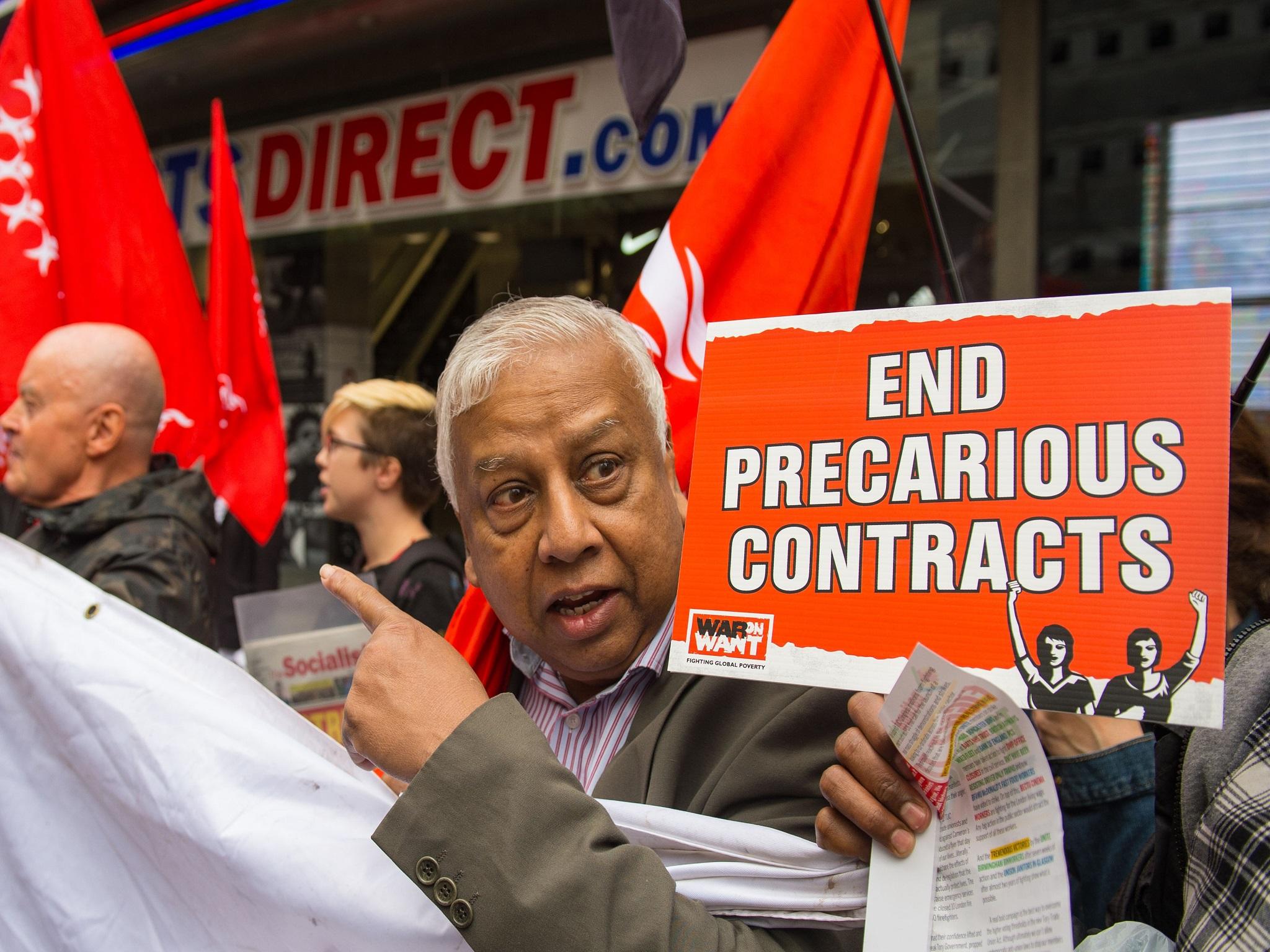The number of "zero hour contracts" fell sharply this year according to new data, suggesting that the trend of UK workforce casualisation might have "begun to unwind".
The Office for National Statistics reported on Tuesday that in May 2017 its latest business survey showed that firms had around 1.4 million employment contracts that didn't guarantee a minimum number of hours.
This was down from 1.7 million in its May 2016 survey and well down on the 2.1 million recorded in May 2015.
The share of firms reporting making use of these contracts also fell to 6 per cent of the total, down from 11 per cent two years ago.
Evidence from the ONS's separate Labour Force Survey (LFS) has also shown an apparent peak in the numbers of workers reporting that they have a zero hours contract.
The LFS evidence suggested there were 883,000 people on zero hour contracts in June 2017, down from 905,000 at the end of 2016.
"It seems possible that the trend towards this type of work has begun to unwind,” said David Freeman of the ONS.
The Resolution Foundation think tank said: "A tighter labour market seems to be having an effect on the types of jobs we do, if not yet on the level of pay we get for doing them."
The unemployment rate has fallen to just 4.3 per cent, the lowest since 1975, although average wages are still rising at annual pace of only around 2.1 per cent, well below the rate of inflation.
The ONS said that many people might still not be aware they are on a zero hour contract, helping to explain the discrepancy between the figures from the employee survey and the employer survey.
The Government commissioned a review into employment practices in the modern economy, led by Matthew Taylor, in response to widespread concern at the proliferation of zero hours contracts, workforce casualisation and harsh conditions in the so-called gig economy.
Frances O'Grady of the TUC said that the latest ONS data should not be interpreted as meaning such problems were now over.
“1.4 million zero-hour contracts is 1.4 million too many," she said.
“While it’s good that some employers have ditched them as a result of union campaigning, let’s not pretend that life at the sharp end has become easier overnight."
The Taylor review recommended in July that people who work for digital platform companies such as Uber and Deliveroo should be classed as dependent contractors, rather than self-employed, and should be provided with additional state protection.
It also recommended government strategies to ensure low-paid workers do not get stuck on the minimum wage.
Subscribe to Independent Premium to bookmark this article
Want to bookmark your favourite articles and stories to read or reference later? Start your Independent Premium subscription today.


Join our commenting forum
Join thought-provoking conversations, follow other Independent readers and see their replies